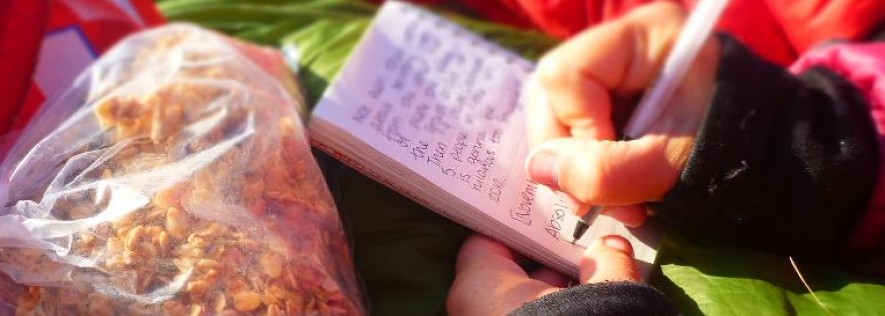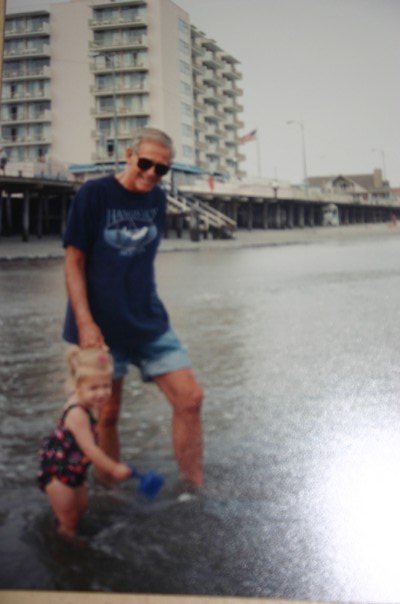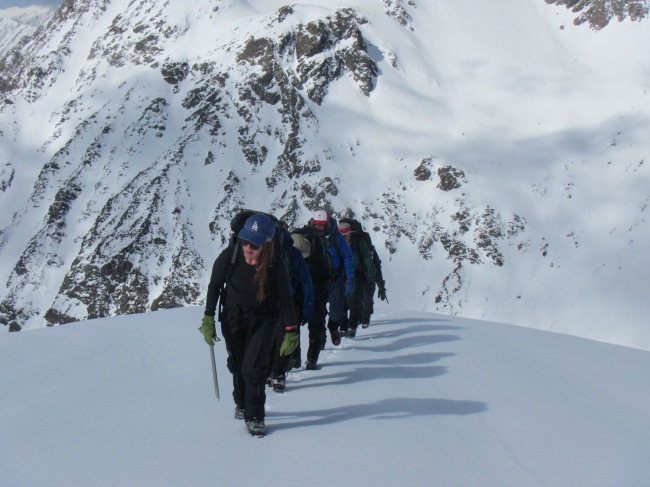The journey required to get to a climbing or mountaineering objective is called an approach. The approach is typically through lower-stakes, non-technical terrain, and often resembles a casual day hike, but is nonetheless a crucial step in the process. The approach is generally flat and mellow in a way that belies the challenges that exist.
My approach began unbeknownst to me in a small coastal suburb in Maine where I was a part of the 98.5% white majority. In this environment, cultural responsivity was not something I had to think about because almost everyone belonged to the same cultural group that I did. For the first sixteen years of my life, I traveled on this well-worn path, eyes on my own feet as I moved forward, able to carry on without having to come up against anything in my way.
When I turned sixteen, the trail disintegrated and I found myself facing a thick forest. I arrived in Chile alone, at night, picked up by a family who was speaking a strain of Spanish to me I could not decipher. Suddenly I was extremely aware of the terrain around me, aware of all of my skills and lack thereof, and felt exposed in a way I never had before. I was the only white, light-haired, light-eyed female in the entire city, and for the first time was singled out as “other,” receiving attention and feeling self-conscious like I’d never experienced. I was forced to look up, to pay attention, to engage with my cultural identity and how it differed from those around me.
When I was eighteen, I came across a boulder field with scree of varying sizes and shapes, stacked up on top of itself in a long maze of opportunities to sprain an ankle. I began college and instead of being surrounded by other white small-town, outdoors-minded Mainers, I was living and studying and socializing with people of all races and religious creeds, from varying socioeconomic backgrounds, with a large range of political beliefs. I had to come up against who I was, how I identified, and how that related to my friends and my classmates. I began a cultural exploration, attending Rosh Hashanah services with Jewish friends, picking up words and phrases in Russian from my roommate, and hearing about what it was like to grow up in the middle of New York from born and bred city-dwellers.
The first truly technical terrain I came across, a mixed pitch of rock and ice, requiring ropes and harnesses and helmets and complete concentration, arrived in the form of a summer spent volunteering in an orphanage in Chile the summer between my junior and senior year of college. I embarked on the experience wanting to improve my Spanish, spend more time in Chile, and work with children, and what I discovered were all of the things I had taken for granted during my approach. The trail had been flat, had been wide and clear and pleasant, and I hadn’t thought twice about it. Now, swinging ice axes into vertical icefalls and kicking steps with crampons to stay anchored to the wall, I was forced to interact with my identity, my beginnings, and how those differed greatly from the children I was caring for. Babies arriving only days old, parents unable to care for them, to be watched after by a large rotating cast of tias. Babies who were sick, abandoned, belonging to parents who were unable or unwilling to care for them. I thought of my own childhood, flat and even, and arrived at the orphanage each morning to care for children who were starting out on vertical walls of rock and ice.
The technical terrain continues here in Denver as I am tasked with teaching thirty-three tiny students who do not look or sound like me. I am aware of the notches and cracks that exist between us, of the ropes that connect us, of the distinct paths we have taken to arrive in the classroom together and of the common present experience that binds us. Despite the differences between us, there will always be common ground, there will always be some way to connect if we reach for it with our hands. We must proceed with the belief that everyone is trying his or her best, that everyone wishes to connect and relate to each other in the way they know how. We will stretch as far as our arms an legs allow and forgive one another when we fall short.
Despite having negotiated technical terrain before, there is still a sense of not being sure of my footing, of being nervous of falling, of not always feeling confident that I know how to handle a situation. What am I, as someone who had such a straightforward approach and who, even when the going gets tougher, has all the gear and tools to get where I want to go, allowed to say? What do I know of others’ experiences? What does my position and my prior experience allow me to speak to without overstepping?
After the approach and multiple pitches of varied terrain, you arrive on a ridgeline that continues out as far as the eye can see, and even farther than that. You do not reach a summit where there is nowhere else to go. There is no set trail and you are forced to do route finding and dead reckoning as you go. It is comprised of rolling ascents and descents, of knife edges, of scree fields and double fall lines and patches of snow—of challenges that will continue for as long as you do, constantly forcing you to assess and adjust and hone your skills in the hopes of navigating them with all possible flexibility, finesse, and grace.






